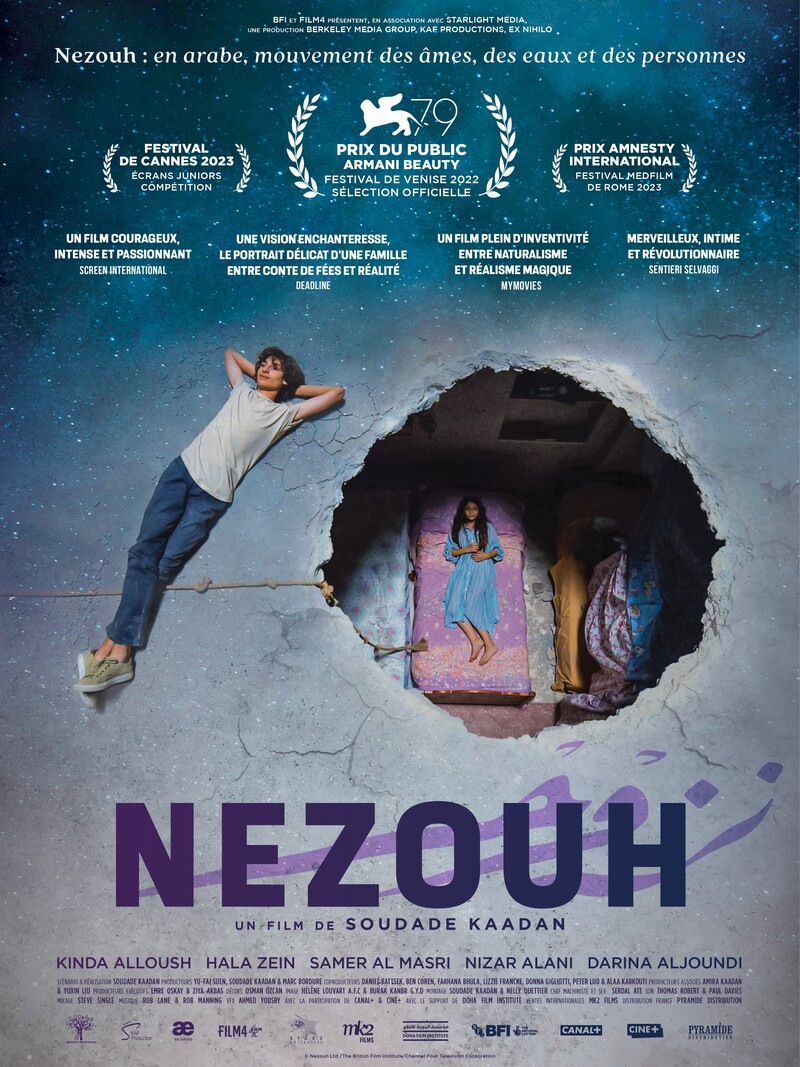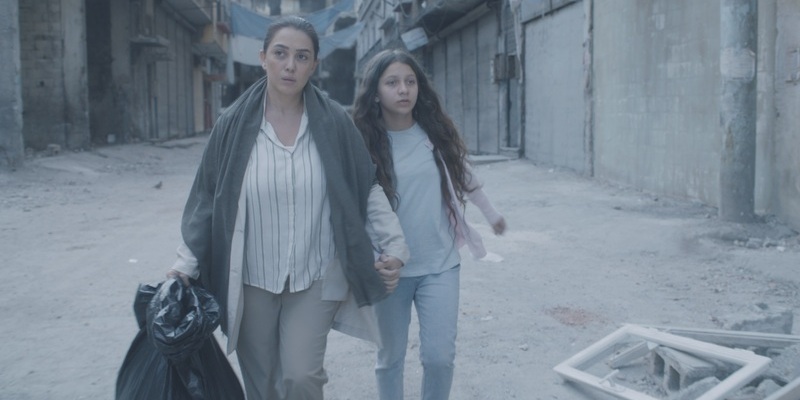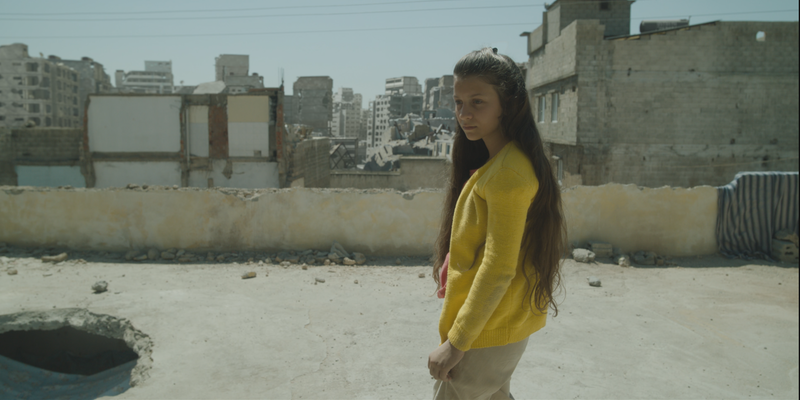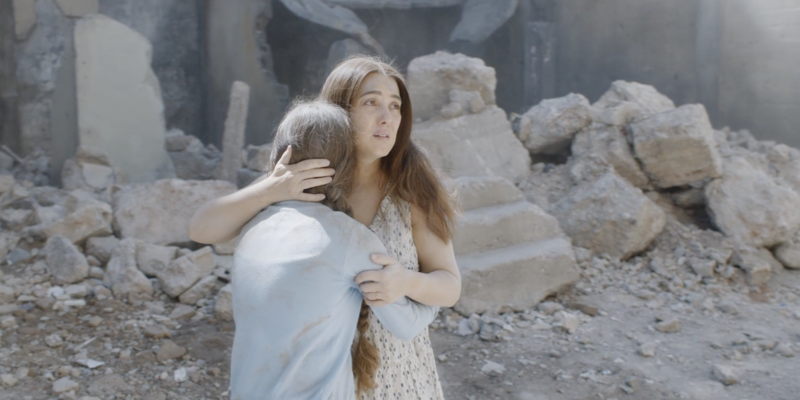
A family in Damascus is divided over whether to stay in their home or
face an uncertain life as refugees.
Review by
Benjamin Poole
Directed by: Soudade Kaadan
Starring: Samer Al Masri, Kinda Alloush, Hala Zein, Nizar Alani

The conflict which affects the Middle Eastern family unit of
Soudade Kaadan's Nezouh is never truly specified: the
narrative is located within Damascus, but indexical features such as
technology and clothes could be from 10 years ago or yesterday, such is
the meagre bricolage of what Zeina (Hala Zein), Hala (Samer al Masri) and Mutaz (Samir Almasri) have scrambled together in war torn
Syria, a doomed milieu where even fresh water is precious.

We open with a
tight shot of tween Zeina hidden beneath furniture, etching an
illustration into the torch lit wood, establishing Nezouh's expressive use of space. A transition takes us to the source of
violent noise - not, as we may fear, the sound of warfare, but a recently
repaired combustion engine which paterfamilias Mutaz has been working on
in the front room of the family's small, storied flat. Mum Hala is in the
background, thinking, tense... The scene exemplifies the family dynamic of
Nezouh: Mutaz is a cheerful optimist, who wants to provide for his family, yet
is restricted by his context; Zeina is a child with a fanciful imagination
while Hala is careful and cautious.
Fairly soon there is another massive loud noise in the flat: this time an
actual bomb which blows the windows of the apartment, leaves a perfect
metre wide hole above Zeina's bed, and leaves the living space looking
like, well, like a bomb has hit it. The family, however, are mercifully
unharmed. Views from the recently perforated homestead reveal a concrete
conurbation of similarly jagged buildings and ruined homes (the location
photography is poignant because it reminds the viewer that this situation
was/is a reality). I mean, where would you go if a bomb blasted a hole in
your ceiling? Neighbours, friends? If they're in the city, chances are
that they're in similarly precarious straits, as illustrated by the
cluster of residents from the opposite high rise, also bombed yet shouting
cheerful support. As a character says, "laughter is the best medicine..."

The surreality of how cheerfully people respond to acts of war, of how
quotidian the destruction and terror is within Nezouh, is compounded by the film's magic realism bent which comes courtesy of
Zeina, who daydreams that the hole in her ceiling is a portal to another
world. In evocative and poetic scenes, the blue sky becomes the infinite
ocean with the night stars skimming stones. One day, a pretty
neighbourhood boy pokes his head through the hole, too. Amer (Nizar Alani) is an amateur filmmaker, and, in the course of their budding
friendship, shows Zeina footage of the oceans she so dreams of (for a
while, there is a reading that suggests Amer may be an imaginary friend,
too, such is his beatific nature). The conceit is clear and subtly
chilling. The only escape that innocent Zeina enjoys is through her
imagination, but creative thoughts are no barrier against falling bombs or
the encroaching army...
As this is going on, seen in glimpses is the growing conflict between
Mutaz and Hala. She wants to leave and take Zeina, while Mutaz is
determined to stick around. The situation is precarious: if they stay,
then they, and, it is suggested, especially the women, risk the wrath of
the marauding army. But if they go, then they are in the wild, with no
shelter. As Mutaz argues, they would be living in "streets, car parks,
camps," and there is the unresolved matter of Zeina's older sister who
escaped but has since seemingly disappeared with no contact... Kaadan
draws her characters with a careful, even hand, sympathising with the
sense of pride which Mutaz clings to, and his shame of not living up to
it.

Nezouh's dichotomy of inside/outside is literalised in the film's final act,
where certain characters do leave the apartment, canvassing the wide
ranges of the city and the treacherous surrounding spaces. With their
picaresque air, perhaps some of the film's tightly wound power is
diminished in these final scenes, but by then we're deeply invested in the
narrative with its charming and immensely likeable characters. If there is
a happy ending, then it is welcome: a surprising twist which is as
transient and rarefied as one of Zeina's daydreams.
Nezouh is on UK/ROI VOD now.


